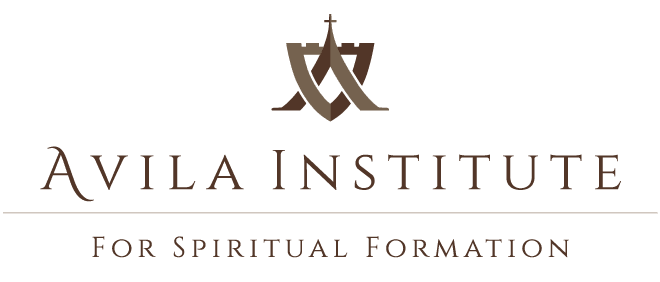The Breastplate of St. Patrick 2022
St. Patrick offered a prayer called the Deer’s Song or the Lorica with his brethren as they walked into an ambush. As the Irish began to renounce paganism and believe the Gospel, they abandoned the conventional myths of their culture. Yet, there were some who were afraid of what would happen without paganism to hold Ireland together. To preserve a social order that benefited them, they plotted violence. Instead of being intimidated, St. Patrick turned to prayer.
Myth can be a vehicle for truth. When it is, it is an appeal to our imagination that helps us search for things that do not change in this passing world. Myth can also be a tool for manipulation, an appeal to the imagination to establish the legitimacy of something that is not really legitimate in itself. This was as true of the pre-Christian pagan myths then as it is true of the post-Christian secular myths today. What appeals to the imagination is never enough for the human spirit and places it at grave risk of self-contradiction. If we are not careful, myths can dispose us to what is irrational – for it is easy to be carried away by myth into strife and violence.
As Christ challenged the conventional myths of pagan society, social standing, privilege, wealth, cultural influence were all at stake. Those who used the myths of the day for their own benefit became convinced that the peace preached by this missionary had to be suppressed at any cost. They hatched the plot against St. Patrick believing in the power of violence. But the peace of Christ is more powerful than the rage that lives in the hearts of men.
His enemies were prepared to kill him and his comrades. St. Patrick’s response was to continue his mission undeterred. The prayer called the Lorica or the Breastplate was born in this holy determination. He taught this prayer to those who assisted him in the ministry. As they prayed together, their would be assailants could not see them – an unseen glory cloaked them. Indeed, all the attackers could see was a few deer walking across a meadow. They were confounded. The prayer became known as the Deer’s Song.
If true, the story is not surprising. There are many accounts of missionaries being delivered in miraculous ways. Those who cling to the status quo and fear losing their power will always attempt to stand in the way of Christ. But a new power that evil cannot overcome is unleashed – the same Power that holds together Creation is poured out for the salvation of those who will cry out to Christ.
In a special way, I ask you to pray this Deer’s Song in solidarity with our brothers and sisters in the Ukraine surrounded by the rage of war — for their safety and protection during these days of great trial. The peace of Christ is more powerful than human rage and our prayers can help His victory be realized in the hearts of those who are given to violence.
Now, I stand clad for battle in that Mighty Power
Of the Name of the Trinity:
Believing in the Three-ness,
Holding fast the One-ness
Creator of Heaven and Earth.
This day I stand ready with
The power of Christ’s Birth and Baptism;
The power of his Crucifixion and Burial;
The power of His Resurrection and Ascension;
The power of His coming to judge on Judgment Day.
I go forth today bound
By virtue of the Seraphim’s devotion,
By angels’ obedience,
By resurrection’s hope unto reward,
By Patriarchs’ prayers
By Prophets’ word of power,
By Apostles’ preaching
By Confessors’ faith,
By Holy Virgins’ purity,
By righteous men’s deeds.
I bind unto myself this day
Heaven’s might,
Sun’s shine,
Moon’s gleam,
With fire’s glow,
Lightning’s flash,
Wind’s swiftness,
Sea’s depths,
Earth’s firmness,
Solid rock.
Today, I rise up with
God’s Power guiding me,
God’s Might upholding me,
God’s Wisdom teaching me,
God’s Eye watching over me,
God’s Ear hearing me,
God’s Word giving me speech,
God’s Hand guiding me,
God’s Way stretching before me,
God’s Shield sheltering me,
God’s terrible Army protecting me,
Against demon’s snares
Against vicious seductions
Against nature’s lusts
Against everyone who meditates injury to me,
Whether far or near,
Whether few or many.
I invoke all these powers, now
Against every hostile merciless force
Which may assail my body and my soul,
Against the false seer’s enchantments,
Against paganism’s dark laws,
Against heresy’s false standards,
Against idolatry’s deceits,
Against spells of witches, and smiths, and druids,
Against every knowledge that binds the soul of man.
Christ, protect me now
Against every poison, against burning,
Against drowning, against death-wound,
That I may receive abundant reward.
Christ with me,
Christ before me,
Christ behind me,
Christ within me,
Christ beneath me,
Christ above me,
Christ at my right,
Christ at my left,
Christ keeping the defense,
Christ setting the course,
Christ giving the orders,
Christ in every heart that thinks of me,
Christ in every mouth that speaks to me,
Christ in every eye that sees me,
Christ in every ear that hears me.
Today I bind unto myself Mighty Power,
The Name of the Trinity:
Believing in the Threeness,
Holding fast the Oneness
Of the Creator of all the heavens and the earth.
Dominus est salus, Domini est salus, Christi est salus;
Salus tua, Domine, sit semper nobiscum.





